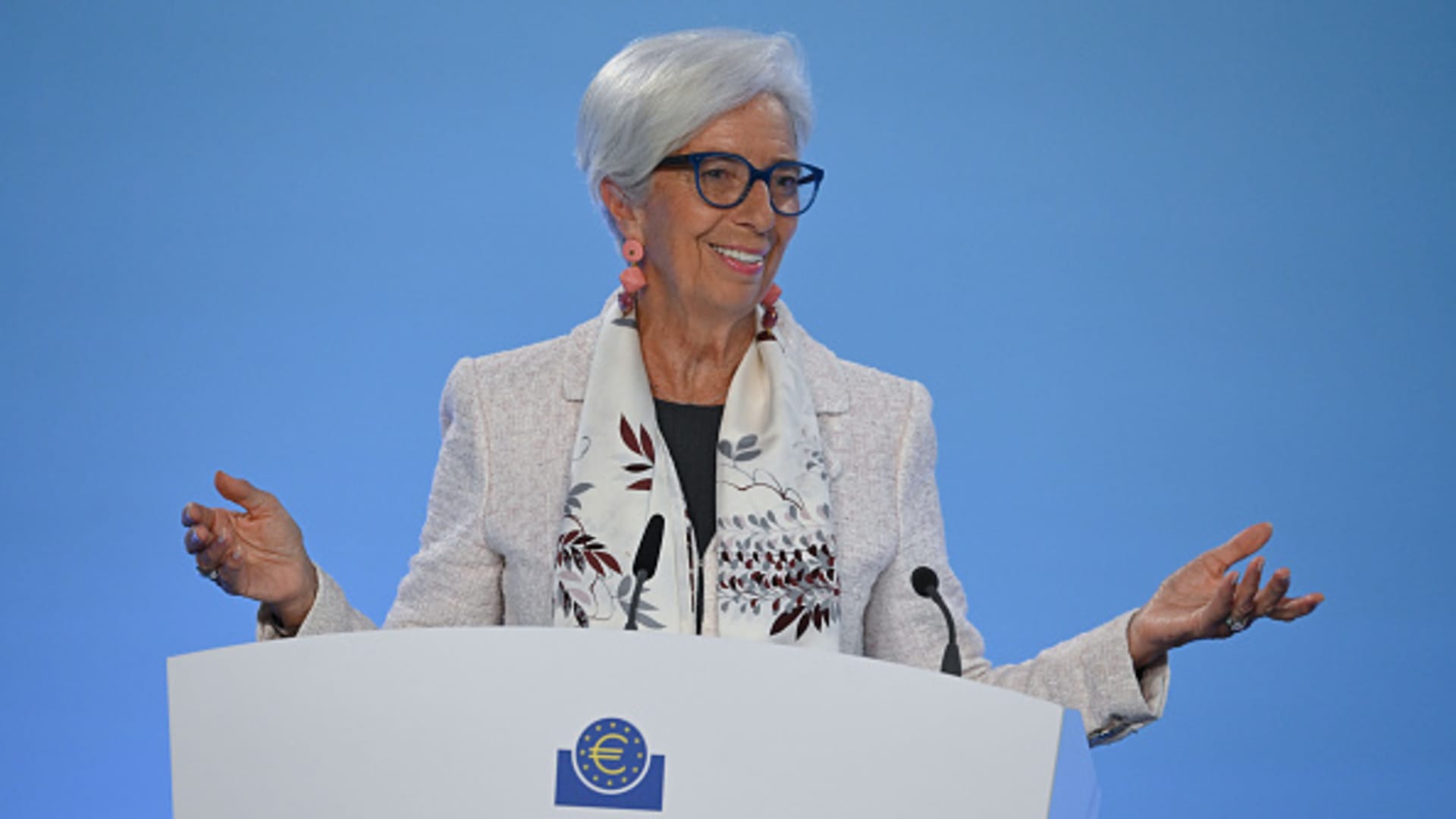Greece's inflation rate rose to 3.5% in July, but it still remains the sixth lowest among EU members, with higher inflation rates observed in other countries such as Belgium, Luxembourg, Spain, Cyprus, and Denmark; however, Greece does have the ninth highest inflation rate in food compared to other EU nations.
The euro zone's business activity contracted in August, reaching its lowest level since November 2020, raising concerns about the region's economic growth and leading to speculation about the European Central Bank's next steps.
Euro zone business activity declined more than expected in August, particularly in Germany, while some inflationary pressures returned, posing a challenge for the European Central Bank's efforts to control inflation without causing a recession.
Brazil's annual inflation accelerated more than expected in August, reaching 4.24%, as the central bank continues to cut interest rates in its efforts to boost the economy.
The European Central Bank (ECB) will maintain high interest rates for as long as necessary to combat persistent inflation, according to ECB President Christine Lagarde, amid efforts to manage a stagnating economy; however, the ECB is also considering longer-term economic changes that may contribute to sustained inflation pressures.
German inflation beats forecasts, complicating the ECB's task, while US labor data eases and GDP is revised lower, causing the dollar to weaken and the euro to strengthen.
The euro reached a 15-year high against the yen due to signs of inflation in Europe, while the dollar weakened ahead of economic data that could indicate a softening economy.
Euro zone growth is weaker than predicted, but the need for more rate hikes by the European Central Bank is not automatically voided, according to ECB board member Isabel Schnabel, who raised concerns about investors undoing the ECB's past work and the decline in real risk-free rates counteracting efforts to bring inflation back to target.
Euro zone inflation holds steady in August, but underlying price growth falls, complicating decisions for the European Central Bank as it considers a pause in rate hikes amid a slowdown in economic growth.
Consumer prices in the eurozone rose 5.3% on average this month compared to last year, with core inflation easing to 5.3%, potentially increasing pressure on the European Central Bank to raise interest rates.
Eurozone inflation remains at 5.3%, leading analysts to speculate that the ECB may consider pausing its interest rate hikes in light of a slowing economy.
Central banks across major developed and emerging economies took a breather in August with lower interest rate hikes amid diverging growth outlooks and inflation risks, while some countries like Brazil and China cut rates, and others including Turkey and Russia raised rates to combat currency weakness and high inflation.
The British public's long-term inflation expectations rose in August, posing a challenge for the Bank of England, which is expected to raise interest rates later this month.
Inflation is expected to rise in August as oil and gasoline prices increase, putting pressure on the economy and potentially leading to higher interest rates and a stronger dollar.
The euro zone's economy is expected to grow slower than previously forecasted due to high inflation and Germany slipping into recession, according to the European Commission.
Germany's economy is expected to contract by 0.4% in 2023 due to higher inflation, rising interest rates, and weaker consumer spending, making it the worst-affected major country in the eurozone, according to the European Commission. The overall eurozone economy is expected to expand by 0.8% in 2023 and 1.3% in 2024, leading to a potential halt in the European Central Bank's tightening of policy. Inflation in the eurozone is projected to average 5.6% in 2023.
The Consumer Price Index is expected to show an increase in inflation in August, with headline inflation rising to 3.6% and core inflation easing to 4.4%, but the market is accustomed to this trend and the Federal Reserve is unlikely to change its rates at the upcoming meeting.
Brazil's annual inflation in August was lower than expected, giving the central bank more leeway to extend interest rate cuts at their upcoming policy meeting.
The European Central Bank is expected to see inflation in the euro zone remain above 3% next year, which strengthens the case for an interest rate increase.
The European Central Bank has raised key interest rates by 0.25 percentage points to help bring down inflation, although the economy is expected to remain weak for a while before slowly recovering in the coming years.
The European Central Bank has raised its main interest rate for the 10th consecutive time to tackle inflation, but indicated that further hikes may be paused for now, causing the euro to fall and European stocks to rally.
US wholesale inflation in August exceeded expectations with a 0.7% increase, driven by a surge in energy costs and gasoline prices, providing the Federal Reserve with new data to consider in its decision on interest rates.
Israel's annual inflation increased to 4.1% in August, surpassing the central bank's target range of 1%-3%, as consumer prices rose by 0.5%, driven by increases in the cost of fresh vegetables, culture and entertainment, transportation, and housing.
Nigeria's annual inflation rate reaches an 18-year high of 25.8% in August due to the removal of subsidies and rising prices, posing challenges for the country's largest economy.
Economists predict that Canada's inflation rate is likely to increase to around four percent in August, mainly due to higher gasoline prices, reversing the previous progress made.
Euro zone consumer inflation in August remained more than twice the European Central Bank's target, with a year-on-year rate of 5.2%, although slightly lower than initially estimated, according to Eurostat.
UK inflation unexpectedly fell in August to 6.7%, easing pressure on the Bank of England to raise interest rates, with falling prices for hotels and air fares offsetting the rising cost of fuel.

